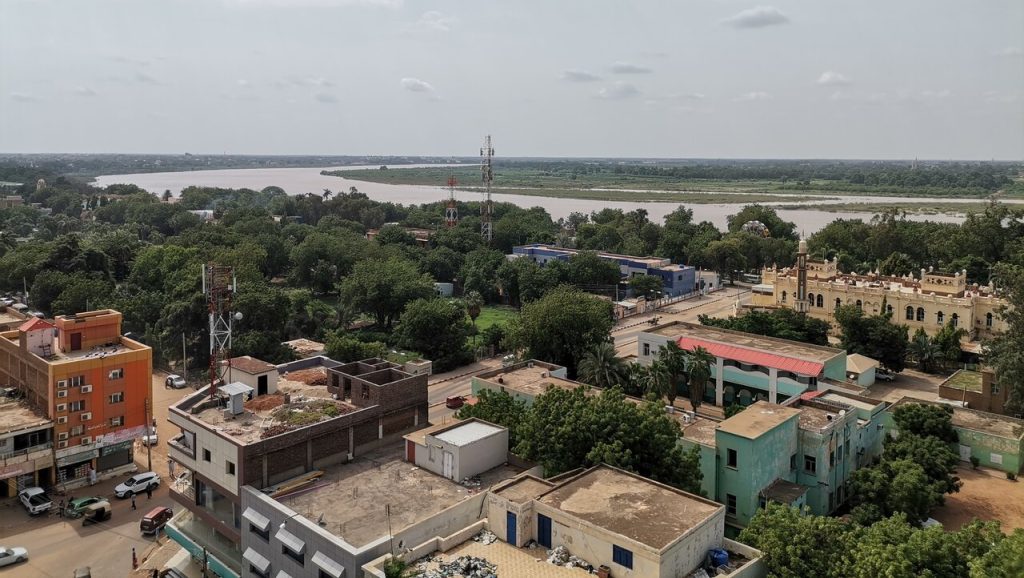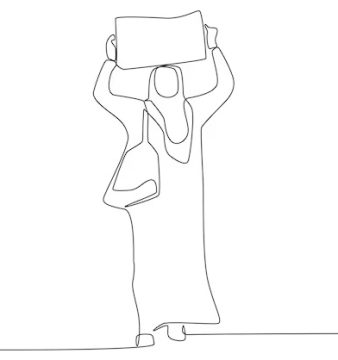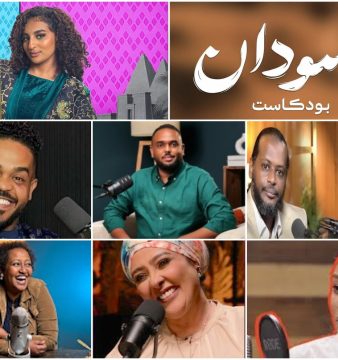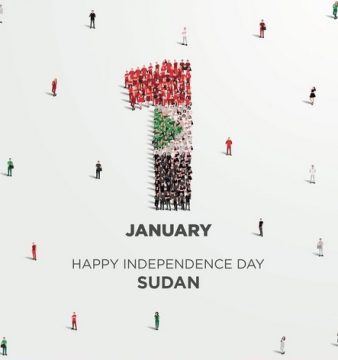The Loss and Reclamation of Wad Madani: A Flash of Hope in the Darkness
15 April 2023 is an unforgettable date for every Sudanese. It marks the beginning of a series of traumatic events ignited by a war that Sudan is still bleeding from to this day. Nearly more than 8.5 mn people were displaced internally and forced 1 mn to flee to neighboring countries to escape the killing, torture, and famine, according to the United Nations (UN).
On 16 December 2023, almost eight months after the war between the Sudanese Armed Forces (SAF) and the paramilitary Rapid Support Forces (RSF) began in Khartoum, the Sudanese people woke up to whispers that the RSF were targeting Wad Madani, the capital of Al Gezira State, Sudan’s second largest city. Madani, a city where most of the people fleeing fighting in Khartoum sought refuge, offered a semblance of home and familiarity to many.
For Duaa Khalifa, a 36-year-old bioinformatics master’s student, those whispers were deafening. While the rest of the world sought accurate information about what was happening in Madani, Duaa and her family were praying for the bombing and gunfire to stop. After enduring two months in Khartoum in the midst of gunfire and bombing, and building a new life from scratch in Madani, history was repeating itself for Duaa and her mother.
‘We were startled by the familiar sounds of military aircraft very early in the morning. After getting used to the peace and quiet Madani offered, I thought I was dreaming. It continued for a couple of days, but all the men reassured us it was nothing. Then, after a few sleepless nights, the bombing began. I thought to myself, “Noway we are going through these horrors again,”‘ said Duaa, stating that it has only been six months since she and her mother fled Khartoum to seek refuge in Madani.
‘We were staying with family, and after finally breathing again for the first time in a while, I had to rethink my entire life. I watched my master’s degree slip away, and all my life plans evaporated. Despite the uncertainty, I decided to stand up and keep going,’ she explained.
After just a month in Madani, Duaa took on a teaching role. ‘I started teaching, hoping to give back to the community and rebuild myself a little. I made new friends and built a life here. People were so kind and welcoming. Unfortunately, this was cut short. One of the bombs dropped on a nearby bakery, turning it to ashes and with it, my dreams of peace. We were ordered to evacuate immediately. It was about 11 am, and we were preparing food when the ugly truth revealed itself. “No time to waste,” said my uncle. I packed what little I had and hit the road,’ said Duaa.
While some struggled to separate rumor from truth about Madani, others prayed for the whispers to be false. The downfall of Madani, one of Sudan’s most important agricultural hubs, and the extension of the war into another major city was a nightmare. According to Reuters, Madani had one of the highest counts of internally displaced people, with nearly 85,000 seeking refuge there before fighting escalated into the city. Thousands had begun rebuilding their lives and businesses in Madani after fleeing Khartoum. As result, according to the International Organization for Migration (IOM), the fall of Madani displaced a total of 300,000 people, including residents of the city and internally displaced persons (IDPs).
After the war, Sudan’s healthcare system faced collapse. According to the Sudanese American Physicians Association (SAPA) and Yale School of Public Health Humanitarian Research Lab (HRL), nearly half – 41 out of 87 – of the hospitals in Khartoum were destroyed. Only 20% to 30% of the country’s hospitals remained operational, according to Le Monde magazine. Healthcare workers across Sudan had to band together to provide care with minimal resources. The loss of Madani, along with its hospitals and physicians, exacerbated the already deteriorating humanitarian crisis.
‘After we hit the road with little more than what we could carry, my uncle’s family – including their newborn baby, who was born in the midst of gunfire – joined us. Thankfully, our neighbour was also leaving in a minibus that could accommodate us all. As I looked back through the window at the familiar faces of those who had helped us so much in recent months, a sharp wave of agony struck me. Watching those who chose to stay and face death broke my heart. I prayed for their safety and that life would reunite us someday. The journey was filled with uncertainty and moments of life-changing decisions. We had nothing but each other to keep us going,’ Duaa said.
Yahia, a 29-year-old graduate, lived in Al Gezira State for a year from March 2023 to April 2024, moving from the small town of Al Sighiaa to the capital city Madani. ‘I went there before the war even started. I love traveling, and a friend invited me to stay with him in a small village near Rufaa called Al Sighiaa. The people were incredibly friendly and welcoming. The slow-paced life captivated me. I felt at home, at peace. A few days before Wad Madani fell, the villagers sensed something was wrong. Unfamiliar, unsettling faces began to appear. Keeping a close watch on the unfolding events in Madani was all we could do,’ he said.
Driven by fear, some of the villagers decided to evacuate early, leaving everything behind in a desperate race against time. Yahia, however, chose to stay. ‘This place had given me so much; I felt obligated to stand by its people,’ he said.
‘For about five months, we would wake up at random hours – 3 am or 4 am – to the sound of mosque loudspeakers calling on men to defend the village against the RSF. We slept with one eye open, never knowing if the next day would be better or worse. Sometimes, we just prayed for the day to end, because the key was that it ended,’ Yahia added.
In addition to being the capital city, Wad Madani is the heart of Al Gezira State. Its unique geographical position and agricultural significance makes it vital to Sudan. With its fall, it was only a matter of time before the surrounding villages became part of the war zone. Lifelong residents were suddenly forced into a life-or-death decision: face the uncertainty and hardship of displacement or remain in an increasingly dangerous home.
‘I miss Al Gezira more than Khartoum,’ said Yahia. ‘There’s something about it – so calm and peaceful, yet so vibrant and alive.’
‘Leaving Al Gezira was one of the hardest decisions I ever made, but the circumstances were stronger,’ he said. ‘I was terrified of the journey itself. The number of people robbed, killed, or tortured for no reason was staggering. Thankfully, I had a better experience and reached my destination safely.’
11 January 2025 marked a little more than a year since the fall of Wad Madani. Whispers of the SAF retaking the city were everywhere. Videos of the SAF soldiers at various locations in Madani circulate online. The Sudanese people, on edge, containing their happiness, waiting for confirmation. Once confirmed, celebrations erupt across Sudan and beyond. The joy of a reclaimed Madani brought hope for the end of the war.
‘I tried to ignore the news at first. I didn’t want to get my hopes up only to have them crushed. Once it was confirmed, I felt as if I were flying. The room couldn’t contain my happiness. No tears could express the relief I felt. It was as though a huge weight had been lifted off my chest. I could breathe again for the first time in a while. Words cannot describe the comfort and joy. For the first time, there was hope that this war might finally end,’ Duaa said.
Hearing about the SAF’s reclaim of Wad Madani filled Yahia with an unmatched sense of joy. ‘I miss everything – the people, the buildings, and the emotions they carried. We are dreaming of the day we can return,‘ said Yahia. ‘Many villagers are now in displacement camps. Though safer, their living conditions are unbearable. They long for home but are waiting to be certain it’s safe enough to bring their families back. We’ve all learned the true meaning of there’s no place like home.’
For Duaa, going back to Wad Madani is still far from reality. ‘We have started a new life from scratch again. I would love to go back but when is the question. Would it be 100% safe? Praying for all the people and all the homes to be good and safe until we meet again,’ she explained.
The return of Wad Madani gave the Sudanese people something they had long lost: hope. In dark and challenging times, this victory sparked celebration, united the people, and ignited optimism for the day when the end of the war could finally become a reality.
Lamia Abdallah Ahmed is a final-year medical student at Ahfad University for Women (AUW). She is also a content writer and storyteller who lives for reading, writing, and fighting for human rights.





